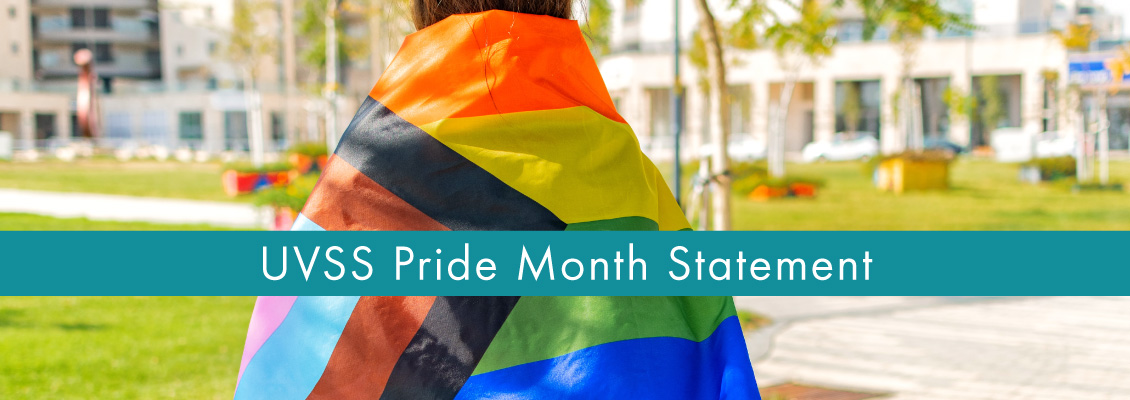*Content warning* This statement contains mentions of homophobia, transphobia, and queer trauma.
Happy Pride Month, UVic!
June is a time to celebrate the queer community while reflecting on our past and imagining our future. For those not a part of the community, it can be easy to look at the rainbow-coloured advertisements and parade floats and not think much of it.
It’s important to contextualize the radical root of our collective struggle, a struggle that continues to this day. Pride was started by a group of misfits, groups of people who had been outcasted by mainstream society, who took it upon themselves to create communities that dreamed of a better world, one of liberation, where queer and trans people could love and exist freely.
In June 1969, police raided the Stonewall Inn, a prominent gay bar in New York City. The trans and queer patrons of the bar, in a stunning display of courage, fought back — defending the ground they had won. Such police raids were commonplace at the time; expressions of homosexuality were persecuted, pushing queer folk to the margins. This blaze was ignited and carried by some of the most marginalized within the community, specifically Black and Brown trans women and butch/gender non-comforming lesbians. Stonewall was a riot, a defence of queer spaces, and a watershed moment in the struggle of the 1960s. It is from this riot that pride first came to be.
Similar instances of severe police brutality and mistreatment were and are still routine in Canada. This spans from the police raid in Toronto, ON coined Operation Soap in 1981, to the neglect of the victims involved in the hateful attacks at the Pride Parade hosted in Hamilton, ON in 2019.
The push and pull of our struggle are what marks the queer community, seeming one step forward and then two steps back. In Canada, homosexuality was first partially decriminalized in 1969. But following that, in the 80s and 90s, the AIDS pandemic was allowed to spread without a care by world leaders, as it was considered a “gay disease”. Today, gay marriage is legally recognized in 34 countries. Our struggles have undoubtedly led to victories, and institutional support has improved. Yet queer rights are also undergoing increasingly threatening attacks. We need only look south of the border to see that bigotry towards queer people is still harming our community. It would be naive to pretend that hate cannot take hold — we can see it in the platforms of political parties in Canada today.
We should take care to remember the colonial history of these forms of oppression. Gender and relationality are understood differently across the world, and nonbinary genders, third genders, and Two-Spirit people are not only accepted but also considered to be sacred. In many postcolonial countries the criminalization of homosexuality and the imposition of a gender binary is directly tied to colonial law. Queerness is a modern construct, defined against the “normal” — cisgender and heterosexual identities imposed by colonial institutions.
Queer rights continue to be contested, and pride is an important part of reasserting the ground we have won and a commitment to the work that is yet to come. We hope we can celebrate the lives and loves of queer folks, and continue to build and defend queer spaces. Bask in the glory of queer joy and love, care for the community around you, and always remember the power of togetherness.
From all of us at the UVSS, we wish you a happy pride month!
Resources:
